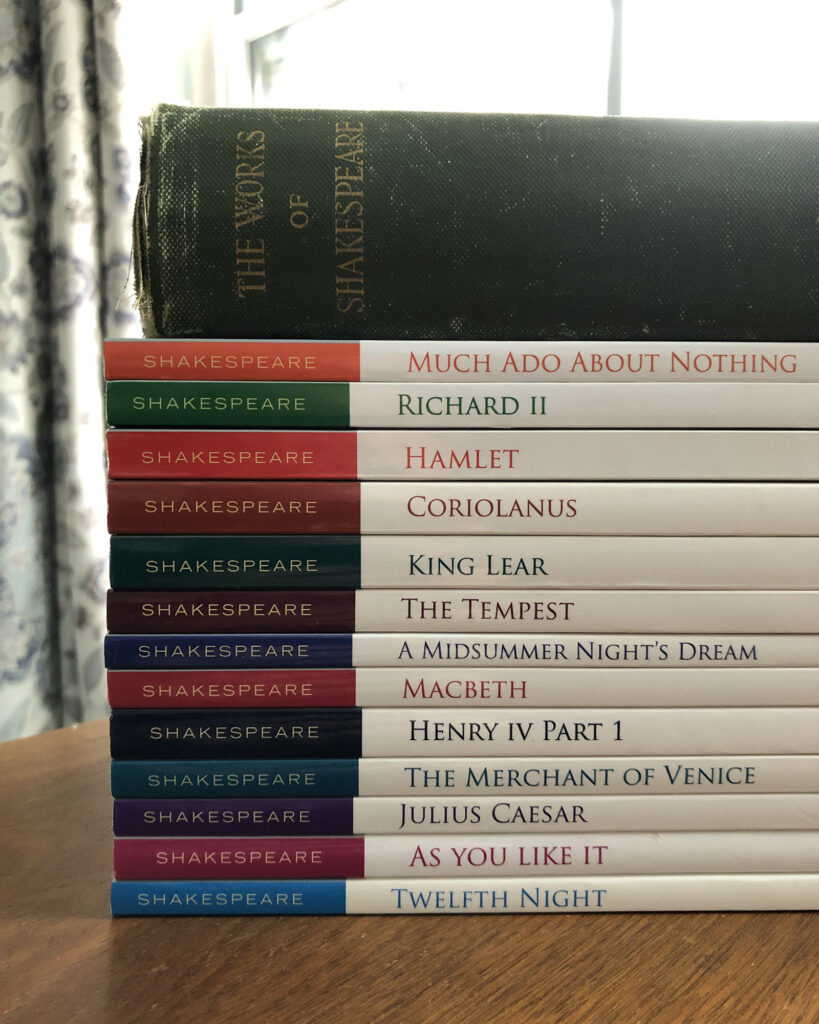CMP Review 2023-01-26
January 26, 2023

“It is quite a mistake to think that children do not get interested in the great plays,” wrote Arthur Burrell. “But it is quite true that they want something more than the play; they want the story brought vividly before them.”
Burrell was the author of Recitation: A Handbook for Teachers, a book which according to Charlotte Mason was more or less the last word on the subject. He wrote for the Parents’ Review and read Mason’s essays to audiences at PNEU conferences. And he knew a thing or two about Shakespeare, whom he referred to as “the first dramatic poet in the world.”
“Straightway there comes to one of the actors in the scene some thought which hinges but slightly on the incident or accident, and Shakspeare soars,” explained Burrell. “The theatre is gone, the world is left; out come high burning words; the poet’s pen has seized upon the things unknown; the poet’s eye has left the earth and glanced at heaven. For these flights the reader requires a corresponding voice-inflection; he is no longer reading to friends, or to an audience; he is lifted above himself; and if he realises the inward exultation that the poet must have felt, his hearers will share that exultation with him.”
When A. W. Tozer tried to understand the works of Shakespeare, “he read them through on his knees, asking God to help him understand their meaning.” Perhaps there is an easier way. Roma Gill wrote that “easily the best way to understand and appreciate Shakespeare’s verse is to read it aloud.” I think Burrell would have agreed.
I don’t read Shakespare on my knees. I read it with my voice and with my ears, as I hear son, daughter, and bride each play a part. Weeks of family read-alouds have turned into months which have turned into years. And from time to time, as with the poet’s eye, our eyes left the earth and glanced at heaven too.
@artmiddlekauff